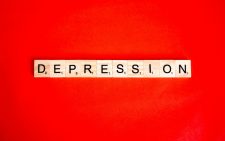Are you suffering from toxic productivity?

Sandra Wekesa @wekesa_sandra
In the midst of a global pandemic, many have revealed the most productive version of themselves.
Talk of being a master of Do it Yourself (DIY), revamping an entire home, taking an online course, setting-up sidehustles, becoming a master chef, becoming our own hair stylist et al…people tried to find ways to do something truly meaningful and productive.
Others may have volunteered to do things unlike before, while others have pushed themselves to self-improve.
And with some employees working from home, the boundaries between home and work life have become increasingly blurred, and many are feeling pressured to prove their productivity and worth by working longer hours and being available at all times.
After a long day of “over-achieving”, the day ends and as we go to sleep, we are plagued with the feeling that there’s more that needs to be done.
While being productive is great, coming from a culture that praises, exalts and rewards productivity, there’s a fine line between healthy and toxic productivity.
Never enough
In many ways, toxic productivity is similar to workaholism and hustle culture, which refers to an unhealthy and extreme obsession with productivity that is never-ending or is never enough.
According to James Mburu, a psychologist, you might be suffering from toxic productivity if you notice that once you have completed work, you start feeling guilty about not having done more than you might have expected to.
Gloria Nafula, 31, knows this feeling too well, having worked as a designer, especially during the lockdown. She found herself wanting to prove herself. “I had just started working when the pandemic hit.
I would often juggle in between working and attending to my hobbie— basic arts.
I slipped into working so hard on my hobbies during my free time and this made me feel like I wasn’t doing enough,” she says.
Nafula would often turn to social media to relax, but this didn’t help as much.
Anytime she saw a snapshot that would juggle her creativity, she often found herself trying out the snap instead of relaxing.
“This is what toxic productivity is —you find yourself struggling to relax even while it should be natural.
It can also be described as an obsession with radical self-improvement, which tends to be expressed best by trying to prove you can meet unrealistic expectations.
We have all experienced someone boasting about being sleep deprived and claiming that they seem to be hard workers, yet in the actual sense, they are making their productivity toxic,” Mburu explains.
Also, one thing that people should be on the lookout for is the constant obsession with fear of failure.
Although it might be inspirational, Mburu says that this is dangerous because in most cases it damages your relationships, health, sleep cycle, and overall sense of well-being.
Take note if you find it difficult to take a break, associating that period of rest with weakness. Or you miss meals because work is of greater priority.
You are used to hearing “You’re always working!” because you are unable to establish boundaries at work. You boast about being available to work all the time, with no days off.
On his part, Geoffrey Wango, a psychologist at the University of Nairobi explains that in most cases, you try too hard to prove that you are not a failure, thus putting more pressure on yourself.
Our culture values accomplishments and there is a constant pressure to be seen to be doing a lot, quickly, or fear being seen as lazy.
In fact, this is instilled in us from an early age and is all around us; from the way that children complete timed assessments at school, to the messages we receive everyday via social and other media, which serve to reinforce the value placed on always striving to achieve more, both personally and professionally.
Don’t be caught in the wild chase
Essentially, we are led to believe that in order to be valuable, we need to be seen to be busy.
Downtime and relaxation have become synonymous with procrastination, and as a result, we do not allow ourselves the space to create, to take stock of things, to reflect and to build meaningful relationships with those around us.
The problem is that the ‘Hustle Culture’ isn’t as great as it is made out to seem.
The external and internal pressures that one subject themselves to may backfire, leading you to undermine your ability, create unnecessary stress and ultimately burnout.
The UoN don advises people to take some time off to rejuvenate and rest. “Don’t find yourself in a toxic cycle. It is good to be hardworking, but also take care of yourself,” he advises.












